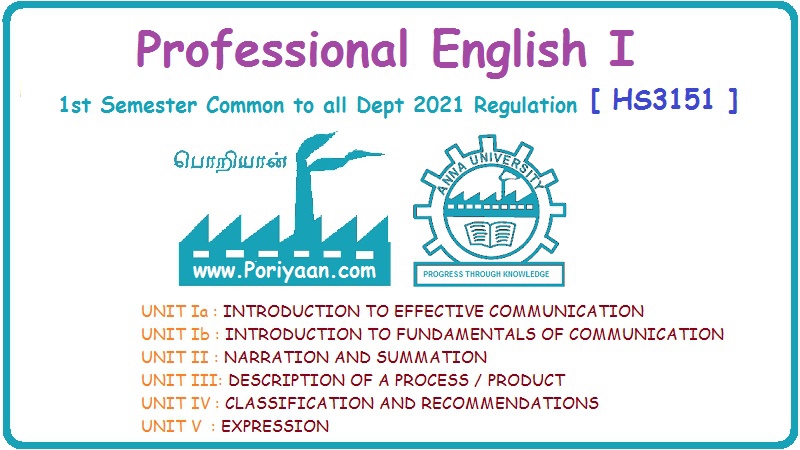Professional English I: Skill 2: Introduction to Effective Communication: Vocabulary
Content Words Vs. Function Words
Vocabulary | Professional English
Each word in English belongs to one of the eight parts of speech. Each word is also either a content word or a function word.
Topic - 13 CONTENT WORDS Vs. FUNCTION WORDS Each word in English belongs to one of the eight parts of speech. Each word is also either a content word or a function word. Let's think about what these two types mean: Content = information, meaning Function = necessary words for grammar In other words, content words give us the most important information while function words are used to stitch those words together. Content words are usually nouns, verbs, adjectives, and adverbs. A noun tells us which object, a verb tells us about the action happening, or the state. Adjectives give us details about objects and people and adverbs tell us how, when or where something is done. Nouns, verbs, adjectives and adverbs give us important information required for understanding. Noun = person, place or thing Verb = action, state Adjective = describes an object, person, place or thing Adverb = tells us how, where or when something happens Examples While nouns, verbs, adjectives and adverbs are the most important content words, there are a few other words that are also important to understand. These include negatives like no, not and never; demonstrative pronouns like this, that, these and those; and question words like what, where, when, how and why. Function words help us connect important information. Function words are important for understanding, but they add little meaning beyond defining the relationship between two words. Function words include auxiliary verbs, prepositions, articles, conjunctions, and pronouns. Auxiliary verbs are used to establish the tense, prepositions show relationships in time and space, articles show us something that is specific or one of many, and pronouns refer to other nouns. Auxiliary verbs = do, be, have (help with conjugation of tense) Prepositions = show relationships in time and space Articles = used to indicate specific or non-specific nouns Conjunctions = words that connect Pronouns = refer to other nouns Examples Knowing the difference between content and functions words is important because content words are stressed in conversation in English. Function words are non-stressed. In other words, function words are not emphasized in speech, while content words are highlighted. Knowing the difference between content and function words can help you in understanding, and, most importantly, in pronunciation skills. I. Decide which words are function and content words in the following sentences. 1. Mary has lived in England for ten years. 2. He's going to fly to Chicago next week. 3. I don't understand this chapter of the book. 4. The children will be swimming in the ocean this time next week. 5. John had eaten lunch before his colleague arrived. 6. The best time to study is early in the morning or late in the evening. 7. The trees along the river are beginning to blossom. 8. Our friends called us yesterday and asked if we'd like to visit them next month. 9. You'll be happy to know that she's decided to take the position. 10. I won't give away your secret. II. Underline the Function words in the sentences below: 1. Is it really going to rain tomorrow? 2. I've ordered the salmon and mashed potatoes. 3. Her brother's a really big fan of German rap. 4. Elvis was born in America. 5. A fantastic little bistro has opened in Holborn. 6. Can you spare any change? 7. How many people are there in your family? 8. Do they know it's Christmas time? 9. Of course you can come to the party. 10. Expect a cold easterly wind and scattered showers.INTRODUCTION
Content Words vs. Function Words
Content Word Types
 Other Content Words
Other Content WordsFunction Word Types

Practice Exercises
Professional English I: Skill 2: Introduction to Effective Communication: Vocabulary : Tag: : Vocabulary | Professional English - Content Words Vs. Function Words
Related Topics
Related Subjects
Professional English I
HS3151 1st semester | 2021 Regulation | 1st Semester Common to all Dept 2021 Regulation
